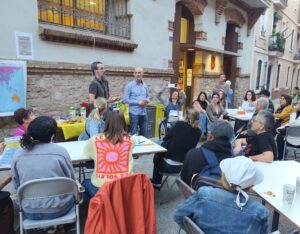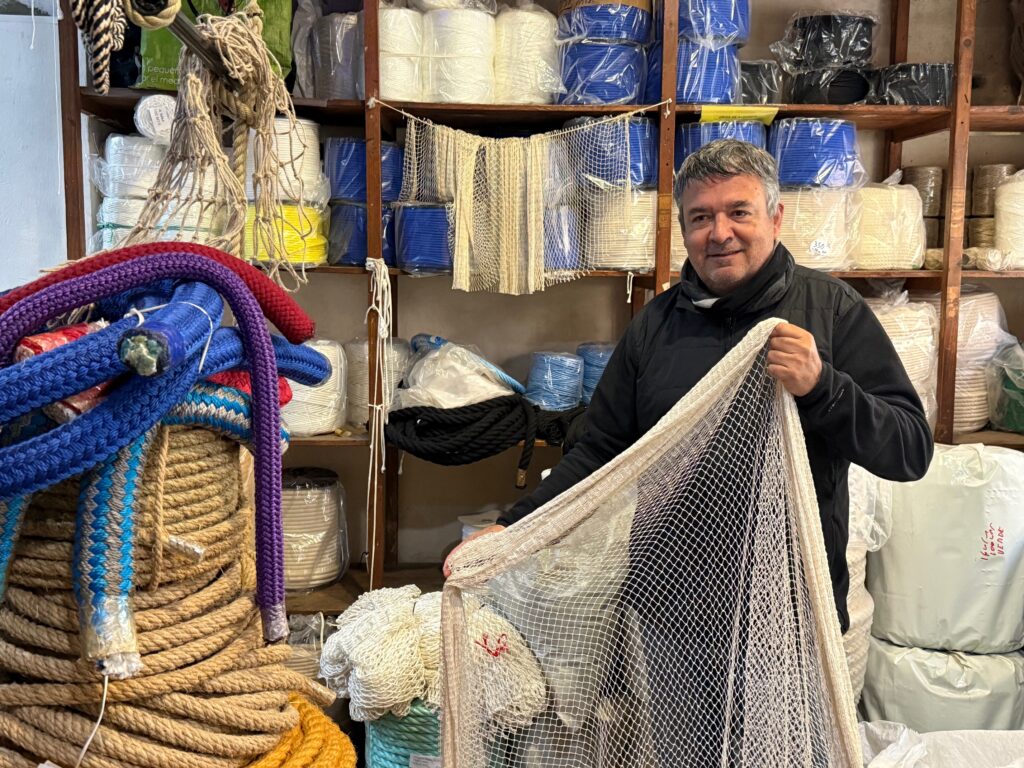Yes, all life as we know it is based on water, and since 97% of the water on Earth is found in the ocean, we can rightly say that life is the ocean. And we say Ocean with capital letters to clearly indicate that all marine basins are interconnected; there are not many oceans, there is only one great Ocean.
Each one of us is also Ocean. Approximately two-thirds of our bodies are water, water that comes to us from the ocean, which we continually drink and return to our environment, mainly in the form of sweat during the summer. The water from the ocean reaches each of us, and all ecosystems, through the hydrological cycle. It evaporates, spends an average of a week in the atmosphere, and reaches us in the form of rain.
The ocean not only provides us with water; it gives us life. Without it, life as we know it would not be possible on planet Earth. It is the planet’s thermostat, its lungs, and its bloodstream, all at the same time. It is also a large reservoir of nutrients and carbon—it contains 87% of the carbon accessible to life—which are vital elements for the cycle of life. It generates about half of the oxygen we breathe, thanks to phytoplankton and underwater forests.
It is also an extraordinary thermal regulator: just the top 2.5 meters of the ocean store as much heat as the entire atmosphere! It absorbs 90% of the excess heat we have generated over the last century, despite the fact that the average temperature of the entire water column has only increased by 0.1 degrees Celsius.
We are responsible
Our uncontrolled activity is endangering this perfect balance. Pollution, overfishing, and the denaturalization of spaces are degrading marine ecosystems at an unprecedented rate. The loss of biodiversity is becoming more evident every day. Since 1970, marine vertebrate populations have declined by 60%, and today, one million species are in danger of extinction.
Warming and acidification are also major challenges. On the one hand, rising water temperatures cause water to expand. This, together with continental ice melt, is causing sea levels to rise, endangering large areas of coastal zones. On the other hand, the ocean has absorbed approximately one-third of the carbon dioxide we have emitted, causing the waters to become more acidic, which endangers coral reefs.
What can we do? Join the collaborative revolution. We still have time. As residents of a seaside neighborhood like Barceloneta, we have a special relationship with the ocean, and also a responsibility. We can reduce our carbon footprint by using sustainable transportation, consuming locally, and improving energy efficiency. In addition, we can protect coastal ecosystems by avoiding plastic pollution and respecting marine protected areas. This will allow us to reconnect with nature, and to the extent that we value and preserve marine spaces, we will be taking care of ourselves.
We must always act and enjoy the extraordinary fact that we are the ocean, we are part of the planetary organism!










